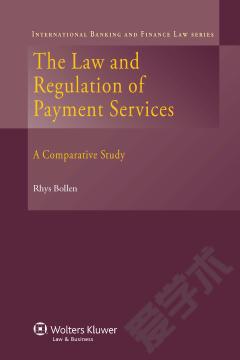Reinsurance Regulation: A Contemporary and Comparative Study —— A Contemporary and Comparative Study
----- 再保险规制:当代研究与比较研究
We seem to be living at a time when insurance is strained to the breaking point. From hurricanes and earthquakes to terrorist attacks and threats of nuclear devastation, enormous risks to life and property - and accompanying liabilities - proliferate on an unprecedented scale. Insurer insolvency is not yet common, but it is not unusual either. And at the root of such failures often lies the compound failure of uncollectable reinsurance. This important book proposes that a significant part of the emerging insurance crisis results from inadequate regulation of reinsurance.In a detailed and cogent analysis of what an effective regulatory regime for reinsurance must entail, the author examines such factors as the following:? direct supervision of reinsurers versus supervision of reinsurance policies;? models from developed countries (US, UK, EU) and international organizations (Organization for Economic Cooperation and Development, International Association of Insurance Supervisors);? the importance of taking legal and economic differences into account while applying models;? the problem of local protectionism, especially in developing countries;? the dismantling of trade barriers in the reinsurance industry;? global harmonization of reinsurance regulation;? the role of reinsurance intermediaries;? finite risk reinsurance; and? insurance-linked securities.The concluding chapter presents an essential legal infrastructure that allows for efficiency, security, and individual market characteristics. The author then applies this framework to the Taiwanese insurance market, demonstrating convincingly how his proposed regime can solve specific problems while respecting Taiwan's distinct market environment.As a meticulously considered appraisal of, and solution to, a world problem that is growing quickly and uncontrollably, Reinsurance Regulation will be of immense value to lawyers, professors, academics, and officials who deal with any facet of economic law.
{{comment.content}}








 京公网安备 11010802027623号
京公网安备 11010802027623号